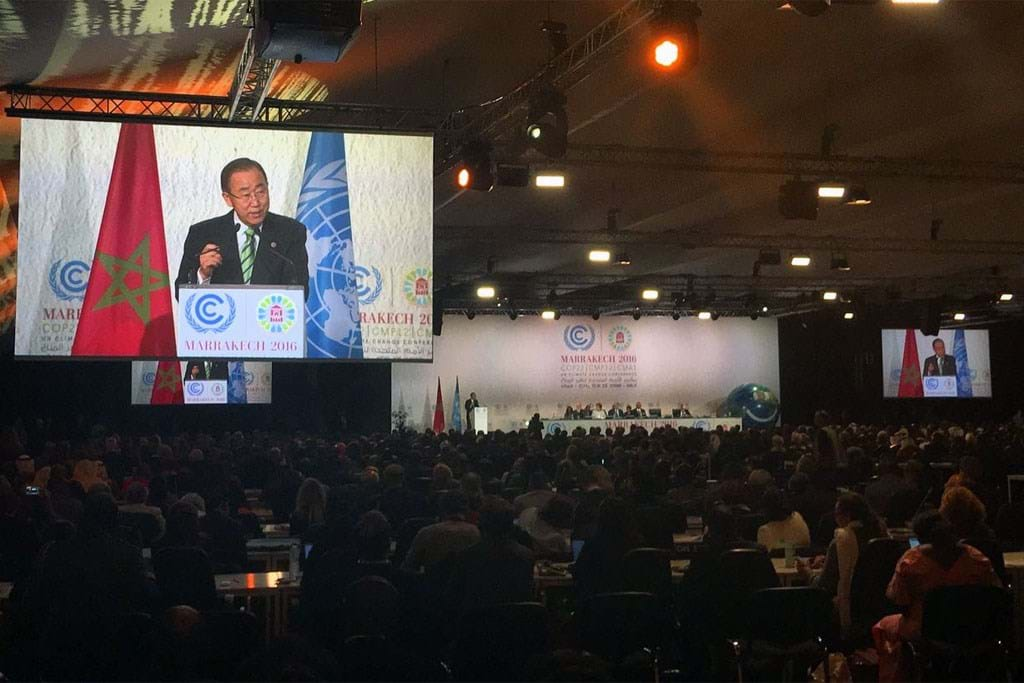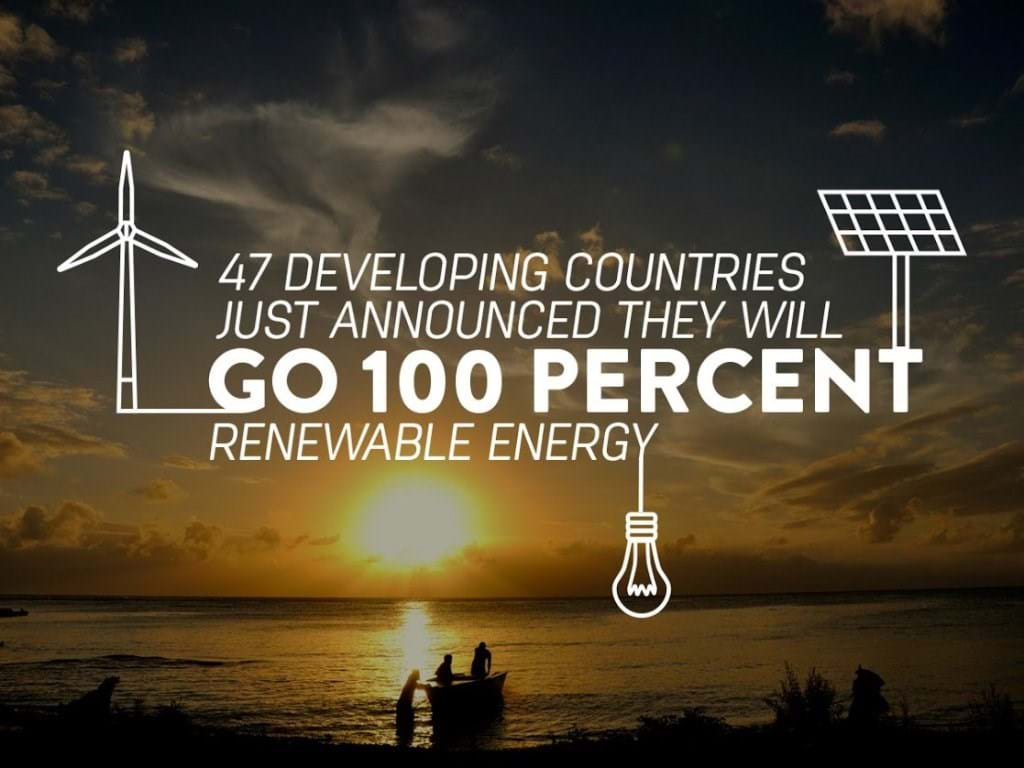Was #COP22 the COP of action? #InvestPlanet

19th November 2016
Author: Geoff Maitland, IChemE President 2014–2015.
COP22, or the 22nd Conferences of Parties to the UN Framework Convention on Climate Change (UNFCCC), has come to an end. Billed as the ‘COP of action’ by UNFCCC Executive Secretary Patricia Espinosa, an estimated 25,000 people descended on Marrakech, Morocco to start the process of implementing the Paris Agreement.
The Marrakech 22nd Conference of Parties ran from 7-18 November 2016. It was also the 12th Conference of the Parties serving as the Meeting of the Parties to the Kyoto Protocol (CMP 12), and the 1st Conference of the Parties serving as the Meeting of the Parties to the Paris Agreement (CMA 1).
The IChemE Energy Centre went along for the second week of COP22 to ensure that the voice of the chemical engineering community was heard. This started with our side event – Investing in the Planet: Green banks and other financial tools to scale-up mitigation technologies – which the Energy Centre co-hosted with the Grantham Institute from Imperial College London and the Natural Resources Defense Council (NRDC).
The event looked at practical solutions to implementing the Paris Agreement, with the help of chemical engineers and financial institutions. Dr Rachael Hall, from the Energy Centre Board, gave the first presentation, an overview of deployment technologies available to mitigate climate change. Rachael outlined pathways to a zero-carbon economy, as demonstrated in IChemE’s technical policy document Chemical Engineering Matters.
Mark Apsey, also a Board member of the Energy Centre, gave his presentation on the pathways for organisations to deliver energy efficiency projects. Outlining various ‘road blocks’ to implementing greener energy solutions, Mark made it clear that he felt that more needed to be done to incentivise delivery.
Watch the side event on YouTube.
COP22’s interesting side-event programme was jam-packed, and this year saw an increased focus on technology solutions for and the investment required to mitigate climate change.
Mark said: “From IChemE’s perspective Chemical Engineering Matters has been created to not just cover energy, but water, food, and wellbeing - which are really trying to look at the whole system, as well as specific solutions to energy problems”.
The UNFCCC needs more chemical engineers at the table proposing feasible solutions for mitigating climate change and applying a systems thinking approach to the implementation of the Paris Agreement.

COP22 was also Ban Ki-moon’s last COP conference. The Secretary-General of the United Nations until the end of the year, he spoke about the success in ratifying the Paris Agreement, which was announced just last month: “Countries have strongly supported the Agreement because they realize their own national interest is best secured by pursuing the common good. Now we have to translate words into effective policies and actions. This is critical to protect our planet, safeguard the most vulnerable and drive shared prosperity. Low-emission development and climate resilience will advance all the Sustainable Development Goals”.
An inspirational figure in the fight against climate change, Ban Ki-moon’s presence will be missed.
The aim of COP22 was to spend the conference working out a clear work plan for achieving the targets set in the Paris Agreement, however the UN has set a target of 2018 to have these plans finalised. This meant that a large proportion of COP22 was spent ‘fleshing out’ the Agreement’s fine print. This included financial support, which will have a massive impact on developing nations. Much of this year's discussions surrounded the funding gap to research, and scale-up and implementation of the technology solutions to reduce carbon emissions.
During the CMA plenary, parties adopted the agenda and the organisation of work. UNFCCC Executive Secretary Patricia Espinosa reported that, as of 16 November 2016, 110 parties to the Convention had deposited their instruments of ratification, acceptance, approval or accession to the Paris Agreement, representing more than half of Convention parties (at time of writing this figure is now at 111).
Ibrahim Thiaw, Deputy Executive Director, UN Environment, said that the current pledges are insufficient to reach the Paris Agreement’s goals, but cited opportunities to “bend the emissions curve.” This means that we have to act now to ensure we implement climate mitigation strategies. Chemical engineers have a key role to play in solution implementation and applying systems-thinking.

Almost 200 countries gathered in Marrakech to work out the details of implementing the Paris Agreement. This deal established the overarching global goals for tackling climate change, but didn't include the detail of how we get there. This left COP22 with a lot of complicated work to do.
Despite being billed as the COP of action, COP22 was instead the COP of discussing the next steps required to implement the Paris Agreement. However, this was a very necessary step if we are to successfully halt catastrophic climate change.
ChemEng365 blog
Geoff Maitland launched this blog during his IChemE presidency in 2014. ChemEng365 features 365 chemical engineering successes and achievements throughout his year-long presidency.